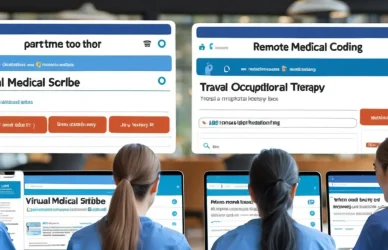Setting clear and structured goals is crucial in the dynamic world of nursing. Whether you’re an RN, nurse practitioner, physician assistant, or medical assistant, the ability to define SMART goals helps boost both personal and professional growth. In today’s competitive healthcare landscape—ranging from part time hospital jobs to work from home medical jobs—goal setting isn’t just helpful; it’s essential.
Healthcare organizations, like Good Samaritan Hospital and Memorial Hospital, often encourage staff to adopt SMART goals as part of their career development plans, job reviews, or orientation. These goals ensure that employees align with both hospital missions and individual aspirations.
What Does SMART Stand For in Nursing?
-
SMART is an acronym that stands for:
- Specific – Clear and detailed. Instead of saying “improve patient care,” a SMART goal would be “reduce patient wait times by 10%.”
- Measurable – You should be able to track your progress and know when the goal is achieved.
- Achievable – Your goal should stretch your skills without being impossible.
- Relevant – Ensure the goal aligns with your professional duties, whether you’re seeking RN positions or medical director roles.
- Time-bound – Set a deadline to stay motivated and focused.
Whether you’re exploring physician assistant jobs or you’re in a leadership role aiming to boost healthcare staff productivity, this framework keeps your goals realistic and result-driven.
Why SMART Goals Matter in the Healthcare Environment
-
In fast-paced hospital settings or remote roles such as work from home healthcare jobs, SMART goals:
- Improve patient care quality
- Boost job satisfaction for healthcare professionals
- Encourage nursing positions to evolve with new challenges
- Create accountability in hospitalist jobs, nurse practitioner job searche
Examples of SMART Goals for Nurses
-
Here are a few tailored examples:
- For New RNs: “Within my first 3 months at University Hospital, I will learn and perform 5 key emergency procedures with 100% accuracy.”
- For Experienced Nurses: “Attend 2 healthcare webinars monthly for 6 months to stay updated on healthcare IT jobs and evolving care methods.”
- For Traveling Nurses: “Secure 3 interviews for medical care jobs within 60 days to find a flexible assignment.”
These goals aren’t just well-structured—they’re directly tied to career advancement in both traditional hospital jobs and modern remote healthcare positions.
Setting SMART Goals as a Nurse Practitioner (NP)
-
Nurse Practitioners have a wide scope of responsibility. To stay effective:
- Clinical Skills: “Increase diagnostic accuracy for diabetes patients by 15% in the next quarter.”
- Professional Development: “Complete an advanced cardiac life support (ACLS) recertification within 30 days.”
- Career Growth: “Apply to 5 openings for nurse practitioner jobs and schedule at least 2 interviews within 45 days.”
Such targeted goals help NPs remain competitive in a job market filled with np jobs and healthcare positions near me.
SMART Goal Examples for Medical Assistants and Physician Assistants (PAs)
-
For those in medical assistant jobs or searching pa jobs, examples include:
- Skill Development: “Master electronic medical record (EMR) software used at Good Samaritan Hospital within the first two weeks of hiring.”
- Job Search Goals: “Submit tailored resumes to 7 physician assistant jobs this month, focusing on practices within 15 miles of my location.”
Both roles benefit from structured goal-setting that aligns with broader medical careers and hospital needs






